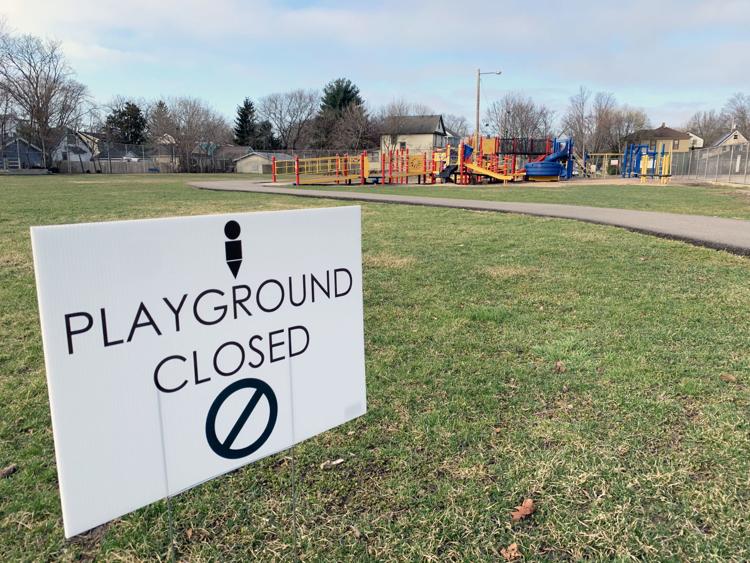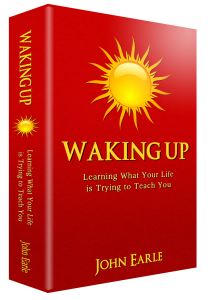“It was the best of times it was the worst of times.” Thus begins Charles Dicken’s wonderful novel A Tale of Two Cities. This might be an apt description of our own time, a time filled with wonderful invention and possibility, technical and engineering marvels, medical miracles and, at the same time, filled with structural inequality, greed, fear, starvation, poverty, war and violence. The highly disruptive coronavirus pandemic invites us to ponder on this question: Will this be a time of positive conscious transition to a better world, or will the forces of ignorance prevail and return us to our usual dysfunctional modus operandi? Will this be the time when humanity finally wakes up and moves towards a greater and more expanded consciousness, or will fear and ignorance and greed pull us once again back into darker waters?
Most of us hope that, when the coronavirus passes, the world will return to its familiar order and shape. Because we fear change and the unknown, we look for something solid and familiar to hold onto, and that which is most familiar is the past. So naturally, we try to return to it. However, when we work to recreate the past in order to escape the present, we simultaneously forgo the enhanced opportunity for societal change and personal growth. Most of us are not aware or conscious that this choice exists. Thus, fear of change and lack of consciousness ensure that we miss the opportunity hidden in the disruptive event.
The silver lining in hard times is that the more painful and difficult the experience, and the more disruptive of our ordinary everyday life, the greater the chance and the opportunity for positive change. Because, rather than cruising along with the status quo, for a moment we cannot avoid the fact that something is wrong, something is not working. The disruptive event breaks into our unconscious patterns and disrupts our equilibrium. This is what is happening right now. The pandemic is disrupting the status quo. Whether the pandemic becomes an opportunity for positive change is up to us.
We will be tempted to try to return to the structure of the past. But, as much as we yearn for the familiar, we can never really return to what was. The question is, even if this were possible is it really what we want? Is it really the best outcome? Instead, perhaps now is a good time to review the past and open to a new and more promising future; open to a higher level of consciousness in which ignorance, greed, and fear, the main drivers of humanity in our current world, are greatly diminished or have been banished.
The twentieth-century philosopher and mystic Georges Gurdjieff pointed out that “the ordinary person operates like a blind machine with no awareness or consciousness.” In the current work of the neuroscientist Dr. Joe Dispenza we see this situation continues. “Dr. Joe”, as he is called, in a friendly appellation, tells us that, for most of humanity, “95% of our actions in the world are unconscious, programmed by our past and locked deep within our subconscious.” We are like robots and, once the software of our past has been installed it tends to go unquestioned as long as there is no unanticipated, major disturbance. Since we operate out of the past in making decisions and communicating with the world, our past basically creates our future. The result is little or no change in our lives. It usually takes a crisis to bring us to the threshold of change, the place of opportunity. This is true for us individually (the micro) as well as humanity or the greater whole (the macro). No amount of positive thinking can change this according to Dr. Joe, as these programs are actually embedded chemically in our physical bodies. A software rewrite is required, and the first step is waking up, accessing awareness to actually become conscious of and begin to realize the existence of our old, embedded programming.
Einstein famously said, “no problem was ever solved at the level of consciousness at which it was created.” Until a significant group of us move to a more expanded level of consciousness, we will continue to make the same unconscious blunders and mistakes, both personally and in the larger world. We will continue to experience the fruits of ignorance, greed, and fear. Wars will consume us, poverty will continue increasing, our liberties will continue being diminished, while financial inequality and environmental degradation continue their downward spiral.
Even in the midst of a tragic and life taking pandemic, a perfect opportunity to demonstrate compassionate and intelligent care, the response of our government has been a “stimulus” package in which human suffering has been used as the cynical excuse to initiate billion-dollar bailouts, corporate tax benefits, and free money to prop up defense contractors, the masters of war. The US Attorney General even used the situation to ask for the elimination of habeas corpus, the foundation, and the core of democratic law.
It doesn’t have to be this way and, whether we like it or not, as Dylan sang, “the times they are a-changin’.” The good news: we are completely capable of creating intelligent, compassionate positive change in ourselves and, when we change, the whole changes. The micro informs the macro. We are the only ones who can change the world. Please think about this if you are waiting for something or somebody else to change first.
Right now, events are becoming more chaotic and disturbing. It seems that, rather than taking Einstein’s advice for problem-solving and going to a more expanded consciousness, we are doubling down, appeasing and even celebrating our worst old inclinations. Although it is the ultimate solution to mankind’s dilemmas, a more conscious world is not yet even a goal in most people’s minds. Most of us are content to continue along like bumper cars, hoping for the lucky break, living in fear and having no focused intention to create positive personal or societal change. Our leaders are even now trying to decide whether human lives or the economy are more sacred. This is a perfect metaphor for the fundamental opportunity that the current situation is offering. Life or death? Should this even be a choice? When did extenuating circumstances become more important than love and compassion?
Do we want to continue on in a world based on maya, the illusion that we can acquire happiness through material possessions, temporal power, and ephemeral fame despite the fact that this model is not sustainable and threatens our very existence? Must we always have more of everything or can we move toward a more sustainable future in which compassion, kindness, and love are valued more than a new car? Let’s create a world in which it is understood that happiness and joy are arrived at through awareness, personal responsibility, inner work and right action, rather than the simple acquisition of ephemeral outer goods and meaningless distractions both real and virtual.
Wouldn’t it be nice if this were an intelligent and heartfelt choice rather than one that is forced upon us once again by a crisis? Either way, the question remains, can we wake up and make this massive disturbance into an opportunity to change the worst of times into the best of times?



 Using four, powerful but simple strategies, learn what the challenging stories in your life are trying to teach you.
Using four, powerful but simple strategies, learn what the challenging stories in your life are trying to teach you. 


Love this Dad! Now that I know you are posting these here I will be sure to read. Thanks and love you.
Thanks Johnny!